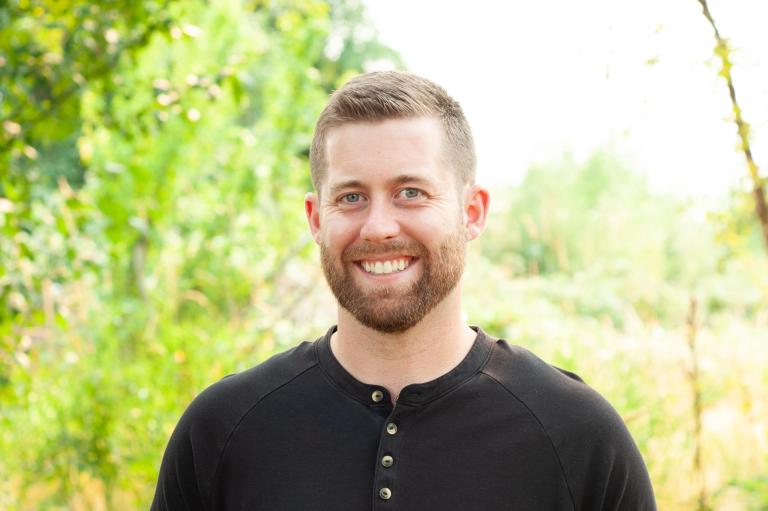
A spirituality built on otherizing is not a mature spirituality.
When I first wrote this line, I didn’t expect the amount of resonance it would find with people. It wasn’t exactly a throwaway phrase, but I hadn’t given it a ton of thought beyond recognizing its truth in my experience.
Apparently others have similar experiences. Since it posted, quite a few people have mentioned it to me and it’s one of the main reasons Patheos offered me this online space. Because of this, I want to take some time here and elaborate on it from my perspective and experience.
A Spirituality Built on Otherizing
During the aftermath of the 2019 senate acquittal of President Trump, I sat down for dinner with seven others, all of whom considered themselves progressive Christians. Before long, the conversation turned to politics and, in typical progressive fashion, those around the table reflected analytically on the historical importance of this event.
We discussed what this meant politically for the upcoming 2020 election and the choice by Senator Mitt Romney to vote against his party in one of the two articles of impeachment.
And as we gathered around the table and opinions were shared, there was one statement that jumped out beyond the rest: “All I know is thank God for Mitt Romney, because now we can call it bipartisan.” The “we,” of course, being the Democratic Party/Democrats.
The quote rang in my ears as the discussion pressed forward without a pause. Nobody at the table questioned her sentiment, rather they nodded with affirmation and excitement. I sat uncomfortably, trying to figure out what to say.
In retrospect, I realize I was uncomfortable with what existed just underneath the surface of her comment: an antagonism of those on the “other side of the aisle,” so much so that it seemed to be divine intervention when one of them crossed to her side.
There was a spirituality – a lens through which reality was being experienced – that made it possible for her to say this. It was a spirituality of fragmentation: there are some of us who are good and some of us who are bad. It was a spirituality of in-group/out-group: we are the righteous and they are not.
Her faith community and spiritual tradition had trained her to see the world this way.
Which isn’t a huge shocker. Many of us have been taught to otherize in religious spaces, learning to identify who is good or bad, which actions are right and wrong, and which moral judgements are rightfully ours to make.
Where do you see this energy of otherizing in your life?
Where have you experienced this in spiritual or religious spaces?
A spirituality of otherizing is a spirituality of the status quo.
The foundations of this spirituality are the same as those that lie beneath the systems of racism, sexism, capitalism, ableism, and any other system dependent on human fragmentation. This spirituality is steeped in so many of us, given to us when we’re young, validated as we grow, and congratulated when we find success in its maintenance.
When we allow it to continue moving through us, we allow for systems of harm to continue.
Think about the different areas of your life:
- How do you otherize people in your workplace or communities?
- Who is “the other” when you’re walking down the street?
- How does it feel to be othered?
How We Approach Others
When this is our default spirituality, unnamed and unexamined, it molds the ways we experience the world and engage with the people around us. It shapes how we see, the interpretations we make, and the actions we then choose, or don’t choose, to do.
This is most clearly seen when faced with those deemed “not like us.” While originally useful for our evolutionary survival, the mechanisms of fight/flight/freeze have been leveraged throughout time by those with power to convince us of who we should be afraid of. (Think of all the ways we’ve been trained by culture to find fault in someone else – it’s all about keeping our distance!)
This energy of otherizing places us in a posture of antagonism, of separation, one that necessitates the finding of more and more reasons to hate, to avoid, and to ignore the humanity of someone else.
It allows for us to not only disagree with others, which is a great thing to do within a community, but to dehumanize them.
How We Approach Those Who Cause Harm
As I write this, I think about all the people in the world who cause pain, who support unjust laws, and who do things I find truly terrible. Isn’t it okay to name them as antagonists and rail against them with all our energy? Perhaps.
But separation, guilt, hatred, and shame are all tactics that created our fragmented world to begin with. We won’t be able to radically shift the world using the same tools that built it.
This spirituality of otherizing feels good when we place ourselves in the seat of power and righteousness, but as any good public school teacher knows, it doesn’t mean anything to be right if the student isn’t learning. It doesn’t matter if we’re right if the person causing harm isn’t learning from their mistakes.
How do we learn to call people into conversation and community, rather than cast them further out? How can we create spaces where we can stop the harm being caused and find ways to restore the oppressor to the fullness of their own humanity?
A spirituality of otherizing doesn’t do any of that. Instead, it validates us in using the oppressor’s tactics against them. There’s nothing truly radical about that.
How We Approach Those Experiencing Harm
And what about how we approach people being harmed in our society?
A spirituality of otherizing poisons us by separating us from the realities of our existence. When we see someone in need of support, it allows for us to approach them with a posture of charity, rather than solidarity. How many churches form soup kitchens but fail to speak up against the systems of economic injustice that create poverty?
A few years ago, Street Psalms created a framework for understanding how we engage in the world. Do we engage in actions that do TO a community, FOR a community, or WITH a community?
Or in my words, is our approach toward those experiencing harm one of colonization, charity, or solidarity?
How were you taught to approach those being caused harm in the world? Think about different kinds of harm: economic, physical, sexual, mental, emotional, spiritual, etc.
How We Approach Nature
This also shows itself in how we approach nature: when we’re in a space of otherizing, we can come to see nature as something to be conquered. Or, at least, we don’t see it as part of us and us as part of it.
A friend of mine and I were walking a couple weeks ago and I mentioned that I was beginning to feel a bit sad with the coming of shorter days and darker skies. He turned to me and reminded me I was part of this process: as a member of the natural world, its rhythms are my rhythms.
The seasons can often invite us into our emotional landscapes in unique ways because we’re a part of them. So of course it’s okay to feel a little gloomy and sad during the Pacific Northwest winter! My body is constricting and shuddering just as the trees are losing their leaves and bracing themselves for another season of cold.
We aren’t separate from the natural world; how could we be? We came from it!
How We Approach Ourselves
And lastly, this spirituality of otherizing impacts how we approach ourselves in so many ways. If we are separate from others, we can be victims or saviors or “not good enough.” It’s a constant game of comparison. But what about being separate from ourselves?
When we feel separate from ourselves, we can justify doing terrible things to our bodies, our minds, and our spirits. Or worse, we can justify going on autopilot, not even noticing all the ways we dehumanize ourselves.
I think of Voldemort from Harry Potter (way more often than I care to admit). Whenever he made a horcrux, he tore his soul in half, which allowed him to potentially live forever. And he knew this: he knew that by his actions, he was dehumanizing himself. How many of us don’t realize this is what we’re doing when we dehumanize others, ourselves, and our world around us?
A Spirituality of Embodiment
At some point in the future, I’m going to sit down and really try to flesh out what an embodied spirituality feels like to me. Because, right now, I get a sense it is the polar opposite of all of this. What would it look like for communities, churches, and people to re-embody themselves with a new spirituality, a new worldview, of honoring and humanizing?
I love how Francis of Assisi used to speak of animals as his brothers and sisters. What if we saw all of Reality as our siblings? With all the disagreements that siblings have, how could we still honor, love, humanize, and affirm the inherent dignity in everything?













